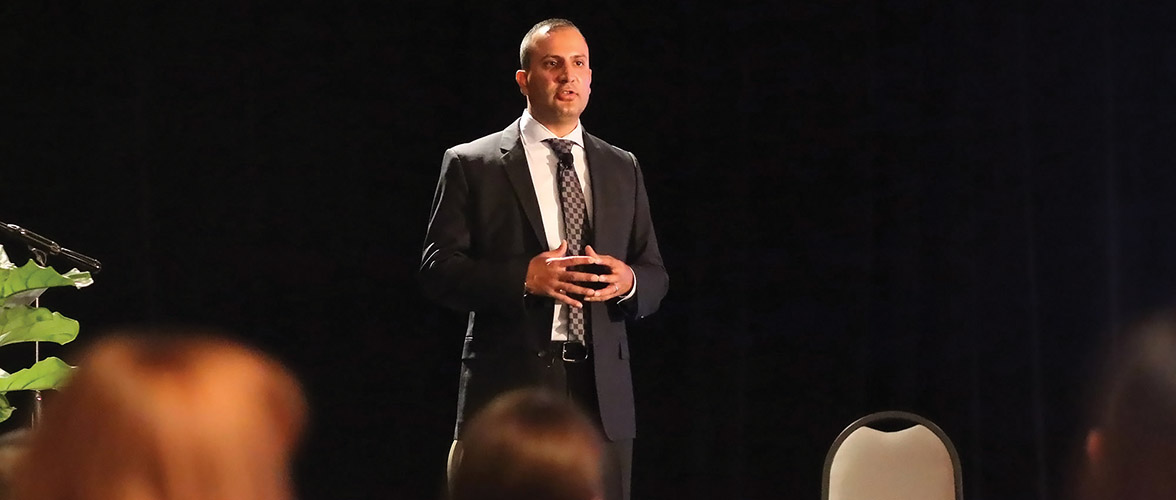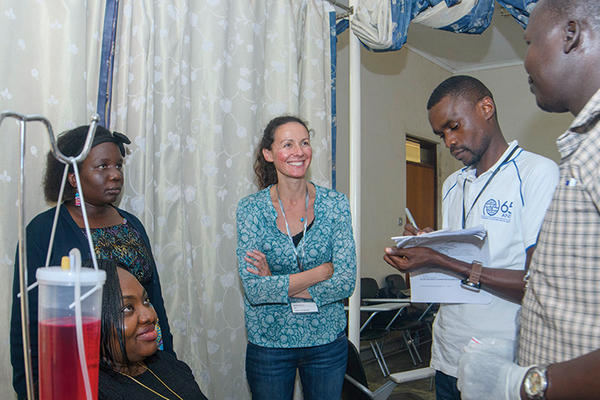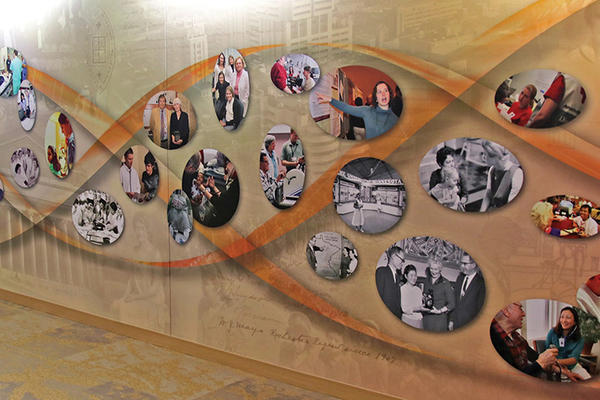Big Data Science Conference focuses on health outcomes, social determinants of health
October 18, 2019

Nurse and health care leaders convened in Minneapolis for the seventh Nursing Knowledge: Big Data Science Conference to advance a national action plan to ensure that nursing data are captured and available in sharable, comparable formats for clinicians, researchers, policy makers and others to advance person-centered care and improve health outcomes.
“The vision of this Big Data initiative has always been about how information systems, including the EHR and other sources of data, come together in a meaningful and synergistic way, with the goal of improving health,” said Connie White Delaney, PhD, RN, FAAN, FACMI, FNAP, University of Minnesota School of Nursing dean.
The three-day conference included reports from 11 work groups on their major achievements accomplished throughout the year and planning for the coming year. Speakers emphasized the importance of the flow of information across the continuum of care, interoperability and data analytics to support decisions, which are increasingly important with the focus on value-based care.
Cyrus Batheja, EdD, MBA, PHN, BSN, RN, chief growth officer, myConnections and national Medicaid vice president United Healthcare Community and Data, shared examples of using big data to better understand complex care of Medicaid members and people experiencing homelessness. Using data, which included social determinants of health, resulted in lowering health care costs, with fewer emergency room visits and hospital admissions.
“Better care, lower costs, better outcomes, that’s the mission that we’re all on,” said Batheja.
Connections made at conference are creating change
For Erin Maughan, PhD, RN, PHNA-BC, FNASN, FAAN, the director of research for the National Association of School Nurses (NASN), the relationships forged at the conference were instrumental in NASN being awarded a contract from the Centers for Disease Control and Prevention to develop a national platform to collect and analyze data pertaining to chronic conditions and their association with school absenteeism and withdrawal.
“I see here the possibilities of more partnerships as well as actually thinking about that systematic change,” said Maughan. “I glean information from who to talk to, who is the expert in documentation, or who’s the expert in this area as well as getting the holistic picture on how we can empower students to take care of their health for life.”
The next Nursing Knowledge: Big Data Science Conference will be held June 3-5, 2020, in Minneapolis.


